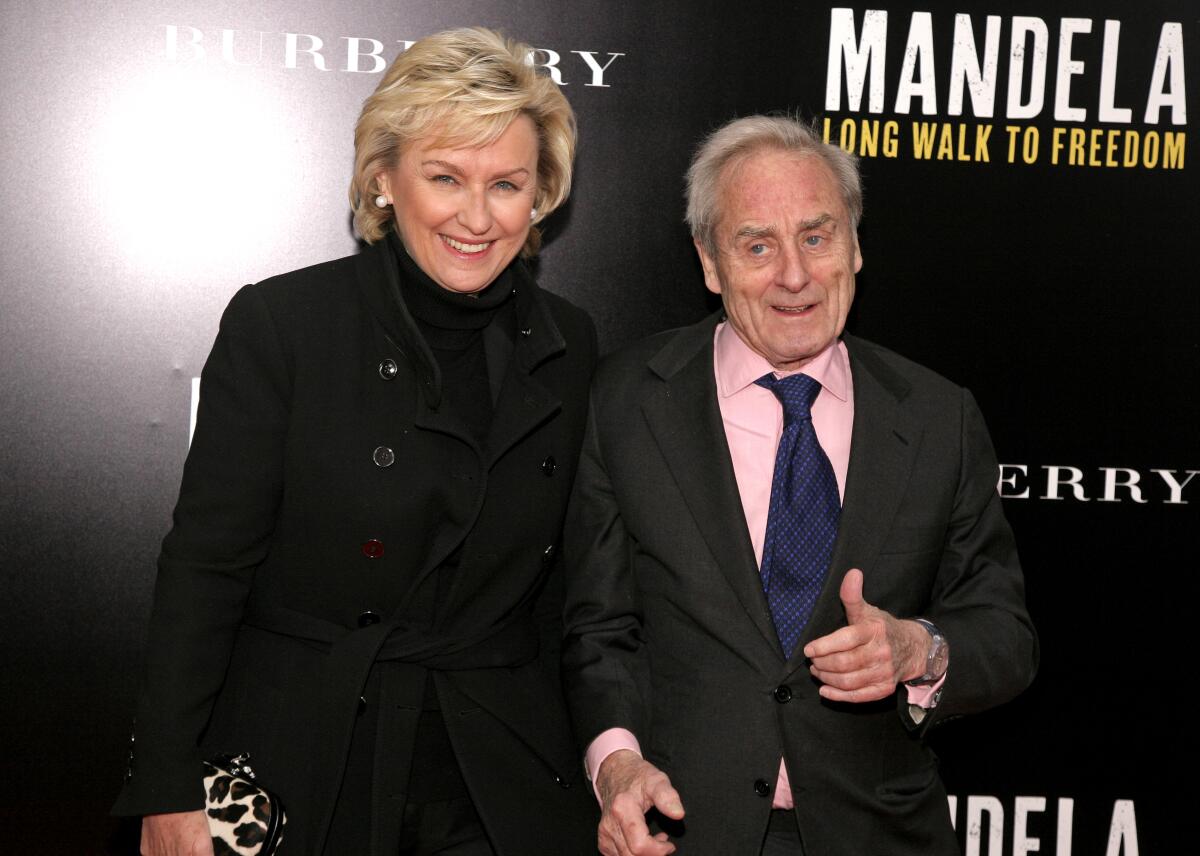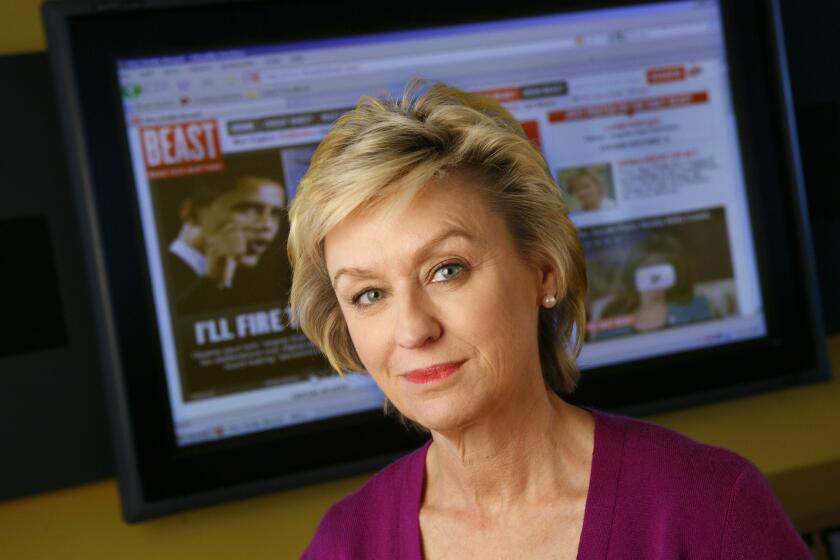Harold Evans, groundbreaking British journalist and husband of Tina Brown, dies at 92

Harold Evans, a towering figure in British journalism who became a longtime New York media fixture alongside his wife, Tina Brown, died Wednesday in Manhattan.
Brown said her husband died of congestive heart failure, according to Reuters, where Evans was an editor-at-large. He was 92.
Evans had a storied newspaper career in England, serving as editor of the Sunday Times, the country’s most prestigious national publication. Working within the constraints on press freedoms in the United Kingdom, he shepherded numerous high-impact reports on public health and political scandals during the 1960s and 1970s.
“I cannot think of another editor whose influence on journalists and journalism matched that of Harry Evans,” said longtime friend Norman Pearlstine, executive editor of the Los Angeles Times, who had known Evans since he arrived in the U.S. in the 1980s.
Over the last four decades, Evans held a number of executive posts in New York, serving as editor of the Atlantic, U.S. News & World Report and the New York Daily News. He was the founding editor of Conde Nast Traveler in the late 1980s and a successful book publisher in the 1990s when he held the top job at Random House. He most recently served as an editor-at-large for the Week and Reuters.
Evans, an admirer of the United States who became a citizen in 1993, was a regular among the Manhattan glitterati with Brown, the dynamic celebrity magazine editor who revived Vanity Fair, oversaw the New Yorker for six years and launched the website Daily Beast. The power couple were often seen on the red carpet and at high-society events.
Evans was born on June 28, 1928, in Manchester, England, where his father was a railroad worker and his mother ran a small grocery shop. His first job in journalism was working for a community weekly in Lancashire at age 16.
After finishing school, he did his national service in the Royal Air Force, where he showed a flair for populist journalism by putting a naked woman on the cover of an otherwise mundane RAF publication he edited.
Following his graduation from Durham University, Evans took a job at the Manchester Evening News, followed by a stint at the Northern Echo, a regional daily newspaper in the northeast England town of Darlington where he became editor at age 31. Under his watch, the paper raised awareness of air pollution and successfully pushed for a national screening program for the detection of cervical cancer in women.
Eight years later, Evans took over as editor of the Sunday Times, a position he held from 1967 to 1982.
Within a short period under Evans, the Sunday Times became known for its investigations, the most notable being a 1968 report on the birth defects caused by the drug thalidomide. He drove his reporters to dig up information on thousands of cases of deformed and stillborn babies that other editors were ignoring.
Editor Tina Brown is so over the printed word
Evans’ aggressive approach — which included the use of leaked confidential documents — defied the generally cautious approach of the British press. The Sunday Times’ work led to Distillers, the company that marketed and manufactured thalidomide in Britain, to compensate the families who suffered from the drug’s effects.
The Sunday Times also scored a massive worldwide scoop in 1967 when it revealed that British intelligence agent Kim Philby was a double agent working for the Soviet Union, a story that the British government claimed would endanger national security.
Roy Hattersley, a writer and former deputy leader of the Labor Party, cited Evans’ willingness to test the boundaries of Britain’s press restrictions. Evans’ decision to publish an excerpt of the diaries of cabinet minister Richard Crossman defied the U.K.’s 30-year rule, which prohibits the publication of classified government papers.
“He struck a tremendous blow for press freedom,” Hattersley said.
Evans was well aware of his strong-willed nature. “My greatest strength is reckless insensitivity to the possibility of failure,” he once said.
Evans’ successful run at the Sunday Times was disrupted in 1977 by the nation’s print unions, which resisted the newspaper industry’s move to using electronic typesetting. The conflict caused a year-long suspension of both the Sunday Times and the Times, which Evans also edited, and led to the sale of the publications by the Thomson family.
Evans tried to orchestrate a management-led buyout, but Thomson chose to sell to Rupert Murdoch, who was expanding his media footprint beyond his family-owned newspapers in Australia. After Murdoch completed the purchase, the mogul agreed to keep Evans on as editor with a promise to not interfere with the editorial product. The promise was not kept and one year later, Evans was asked to resign on the day after his father’s funeral.
Evans married Brown, 25 years his junior, in 1981. The two had met in 1973 when Evans hired her as a writer at the Sunday Times. Evans’ first marriage — to Enid Parker, whom he wed in 1953 — ended in divorce.
Evans and Brown moved to New York in 1984. As Brown ascended in the magazine world, Evans founded Condé Nast Traveler and later became a major force in book publishing at Random House. He acquired a number of hit bestsellers during his run, including the novels “Primary Colors” and “Midnight in the Garden of Good and Evil.” He also landed several high-profile memoirs, including ones from actor Marlon Brando and a young future president named Barack Obama.
Evans wrote several memoirs and populist history books including “The American Century” in 1997.
Even though Evans had become an American citizen, he was knighted by Queen Elizabeth II in 2004 for his services to British journalism.
Along with Brown, Evans is survived by his children, Isabel, Georgie, Ruth, Michael and Kate Evans, and brother Peter Evans.
More to Read
Start your day right
Sign up for Essential California for the L.A. Times biggest news, features and recommendations in your inbox six days a week.
You may occasionally receive promotional content from the Los Angeles Times.








